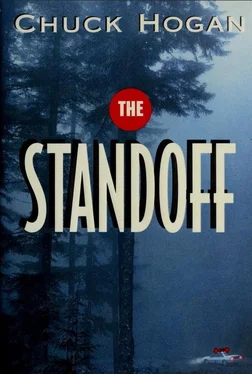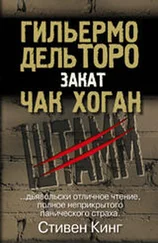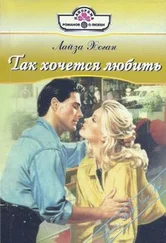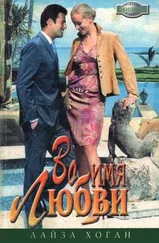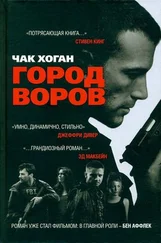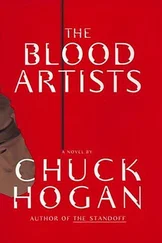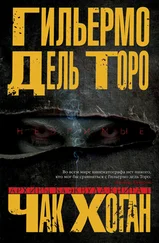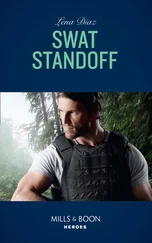“And the parents insist he was a very neat kid.”
Blood nodded, now pacing a bit. “And that right there is evidence lost, because it comes out later there’s a young lady who claimed she was with Kowes in the car the night he died. Her story was that the boy thought he was being followed, which was why he got a little lost and anxious driving around and wound up blowing a tire. She said he pulled over and told her to get out of the car and hide — she’s not Indian. From where she was, deep back in the potato field, she said she heard some other car door slam, and voices.”
Banish nodded. “All right, then.”
“Problem is, she’s changed her story, significantly enough, more than once. And now she’s moved away altogether and I don’t have the faintest idea where she is.”
“So Moody’s office had the car and the missing persons report and never connected them?”
“Exactly. He said they didn’t because the body was found in the river, which is county land, my jurisdiction, and the car was found out by the tracks, which is his. But that’s damn thin to me,” said Blood, feeling the harshness in his own voice. “Damn thin.”
Banish came out then, around the corner from the bathroom, his shirt unbuttoned and pants half-open at the waist. Blood saw a raw, silver-dollar-sized scar just below his stomach, a red-pink indentation upon the white of his skin, and smaller flecks of pink around it — then looked up immediately at Banish’s face so as not to stare.
Banish tossed his dirty clothes on the bed. “It’s not Moody,” he said. “I’m sure you already looked for some connection between the victims, other than gender and race, and if there is none, then forget it. It’s only a cover-up if somebody profits. This doesn’t read like a police conspiracy. More likely, Moody just turns a blind eye, or worse, he doesn’t care. A couple of drunken Indians to him. Two drownings and some traffic accidents. That’s what others will say too. If it’s FBI involvement you want, you’ll need more than this. No paint on the hit-and-run?”
“From the car finish?”
Banish tucked in his shirt and fixed his pants. “Impact burns paint onto the skin and clothing.”
Blood nodded. “There was none of that. You see?”
“What was Darkin wearing besides two T-shirts?”
“Jeans and a leather jacket.”
“That’s good. Leather picks up paint better than anything. No paint on that jacket, then you proceed right away with an open homicide investigation. Tie in one more similarly dead Indian and you’ve got grounds for a civil rights case that bumps it up to federal. And I would also consider contracting an outside coroner, one who isn’t so quick with his knife.”
He ended nodding, seemingly reviewing his own answer. He picked his wallet up off the bed and slipped it into his back pocket. Then he was still, standing there. Then he shook his head. “How could you let something like that go so far?” he said.
Blood looked at him. “What do you mean?”
“What is the overall Indian population up here?”
Blood thought about it, realized what was being implied. “Maybe two percent,” he said. “You saying I’m not doing my job?”
“You had questions,” Banish said. “You talked to people, you developed theories. Then you did nothing. Why wait for federal help on this? How can you allow these separatists and neo-Nazis around here at all?”
Blood was hot. “They call it freedom of speech,” he said. “Lots of good people up here too.”
“Sure,” Banish said, “but there’s a fine line between good people and look-the-other-way-and-keep-quiet people. Freedom of speech works both ways.”
Blood nodded slowly. “So I should just take care of them then. The way you took care of Mellis.”
It surprised and ashamed Blood how much venom he had in him, but Banish took it, standing quietly a moment. “I’m saying that working in secret is not doing anyone a damn bit of good. Get out and meet these people head-on. They are flaunting their lawlessness and disrespect in front of you. You’ve got to confront them, you especially. Otherwise, you’re the sheriff of this county and no better than any of the rest. You have to show these people to be ridiculous. Humiliate them. Nothing else works as well.”
Blood’s face burned. The room seemed to drift a little and he looked around, his mind filling with all the things he could come back with: that he didn’t have the public’s support, that he was just a one-man office. But hearing it loud in his head like that warmed another blush of shame on his face and he realized his excuses were all just as petty as they sounded. Which was why Banish had called him a politician. Ever since the glory of his election-year upset, for some reason Blood had been tipping his hat at these frays rather than running headfirst into them. Storing his pride rather than displaying it. Blood was embarrassed, but more angry now than blushing. Angry at Moody and anyone else who was taunting him. There were shit bags laughing at him behind his back. He realized that he hadn’t come to Banish for aid at all — he had come to be talked out of something, to be told he was wrong when he knew he was right. In certain circles Sheriff Leonard M. Blood was a laughingstock. He had been elected to keep the peace. There were good people out there, not just the trash he mainly dealt with, but good, fair-minded people who had invested their trust in him when they cast a vote for change and peace and order and law.
All this put him in mind of another thing he had so willingly set aside, another thorny suspicion he had been shying away from. He brought out the letter he had been carrying around and handed it over to Banish. He waited until it was unfolded and recognized. “The letter to WAR from Ables,” Blood told him. “A man last night claiming to be Ables’s lawyer passed copies of this around, stirring up the crowd. Said ATF threatened to bring charges if Ables didn’t tattle for them, and said he could prove this in a court of law. You ignored that when I brought it to you before. Can you now?”
Banish looked at the letter. He folded it in half, running his fingers slowly along the crease. “If I told you it didn’t matter?” he said.
Blood said, “Can you now?”
Banish held the piece of paper. He didn’t say anything.
“What would you do,” Blood said, “if this whole mess turned out to be one big damn mistake?”
Banish was quiet for a while and seemingly heavy with thought. Then he folded the letter once again and slipped it into his shirt pocket. He nodded at Blood from where he was standing. “You’re a dangerous man yourself,” he said.
Dangerously inept, thought Blood. A mat for people to walk over, a statue that sometimes even talked. He had thought previously that strength and silence were enough. Chief Moody practically burgling his office. Cops parking in his space. Deke Belcher throwing up insults at him in his own car. All unanswered by him. The thought of them snickering made Blood furious. Why hadn’t he acted? Why did he keep so much in reserve? And what was the cost?
He pictured each of the Indian boys — young, drunk, and terrified — surrounded and set upon by a mob.
Banish moved to the door. “I want you up at the staging area from here on in,” he said.
“Why?” Blood said. He was mad and frustrated and trying to hide it.
“We’re getting into negotiations with Ables now. You know the character of the people, the way around here. I want you in the mix. You might pick up on something I would otherwise miss.”
“And?” Blood said.
Banish seemed to think about that. “There’s also a saying,” he said. “Keep all dangerous men closest to you.”
Читать дальше
